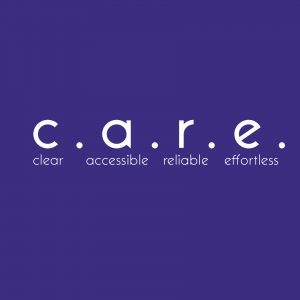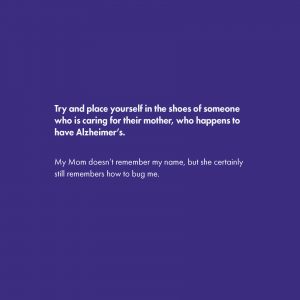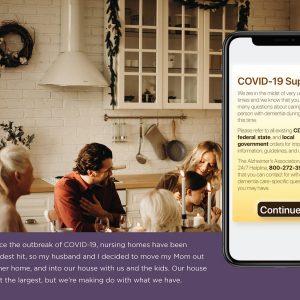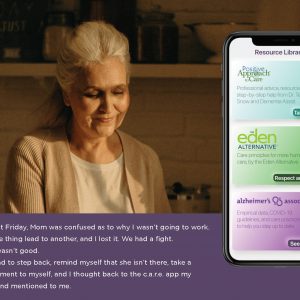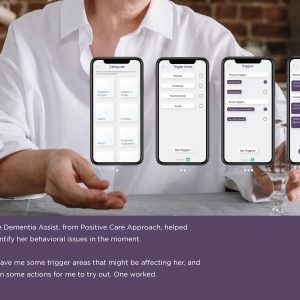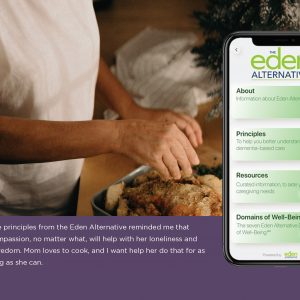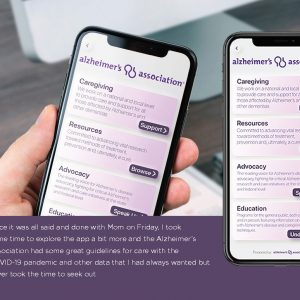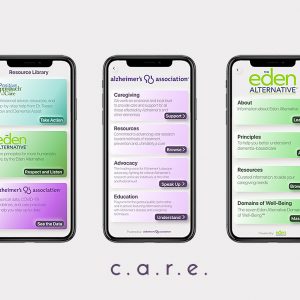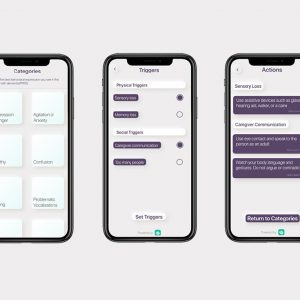Product Name: c.a.r.e.
Topic/problem description:
An estimated 5.8 million Americans currently suffer Alzheimer’s disease/Dementia(A/D). Dementia is a term used to describe general cognitive decline over time; Alzheimer’s is a type of dementia that specifically affects memory, thinking, and general behavior(Alzheimer’s Association, 2020). People suffering from A/D typically need someone to care for them, their cognitive functions are greatly impacted and many times they cannot care for themselves, and thus they are looked after by family members or professionals. These caregivers are the life force of someone who has A/D; the person with A/D will oftentimes need assistance with cooking, eating, wayfinding, using the bathroom, and a multitude of everyday tasks. One important factor that caregivers supply to this population is genuine human connection; even in our darkest days and at our weakest, we need kindness and social connections to function properly as humans. We are innately social beings, and caregivers of these people are supplying just that; a social setting.
While caregivers are oftentimes seen as ‘superheroes’, they often have many of their own hardships they deal with on a day to day basis. Being overworked, underpaid, and emotionally stretched on the job will take its toll on a person, and these caregivers in question are no exception. To care for someone who no longer has no longer has functioning working memory, the memory function that allows you to have basic self-monitoring functions, is a task that comes with emotional stressors, that even professionally trained caregivers may not always be able to cope with. While a best case scenario may see a person with A/D being cared for by a professional caregiver, this is not always the case; oftentimes a spouse will be in care of their partner, and they may not necessarily have the proper training or resources to effectively do so. How might a service amalgamate available resources and provide actions and counseling to caregivers, in turn helping them provide better care?
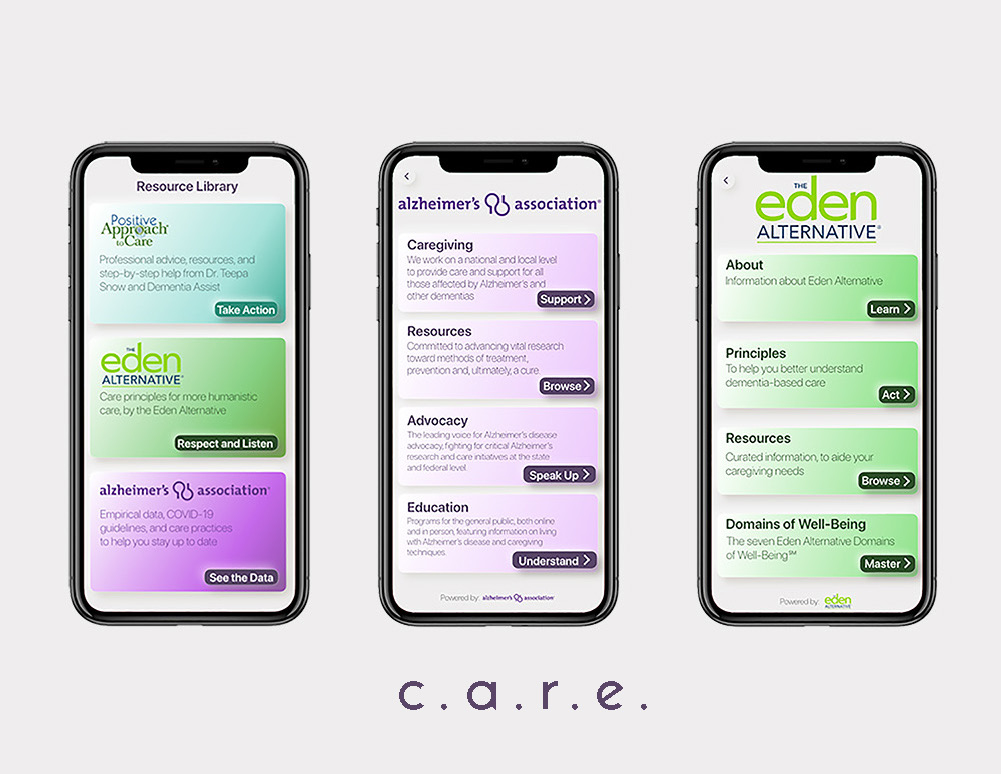
Solution:
There are a handful of organizations and professionals, both stateside and abroad, that together account for a vast amount of the knowledge base when it comes to A/D. While many professional caregivers have in-depth training for handling situations that may arise with a person with dementia(PWD), they do not always have the answers. As humans, we can only tolerate so much stress, and caregivers are certainly no different; between the emotional stress of the job and external factors, caregivers are oftentimes stretched thin when it comes to emotional and physical health. On the opposite of the caregiving spectrum, a spousal caregiver–who may not have any training at all–may have no idea where to even begin when it comes to resources that can help them care for their loved one. There are many knowledge bases that exist, though not all are entirely user friendly, easily accessible, or completely thorough in their execution of the intended functions and services.
To best serve the diverse spectrum of caregivers who care for people with A/D, a service called c.a.r.e(clear, accessible, reliable, effortless) combines information from the Alzheimer’s Association, Eden Alternative, and Dr. Teepa Snow and her Dementia Assist app, to exceed accessibility barriers and help caregivers better administer care. This service will have digital elements; located within a centralized application, the combined resource libraries will be easily available alongside the Dementia Assist application. This service will be quick in generation of simple actions to mitigate incidents, presentation of pertinent information, and subsequent data to help the caregiver compare what has happened and how they may mitigate further situations.
c.a.r.e. Prototype – Interactive prototype- click below to open it!
Keyboard accessible prototype (follow link, then use arrow keys)

